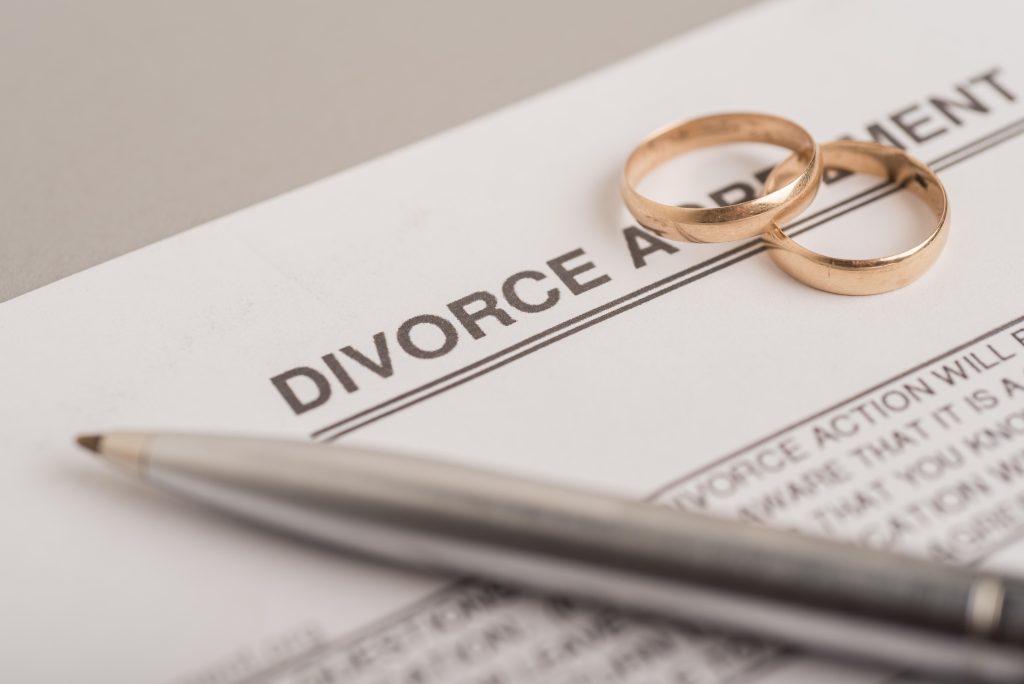Divorce is a deeply personal and often challenging experience, especially when it comes to dividing what you’ve worked hard to protect. At Park Gold Group, we understand that one of the most delicate issues in a divorce is how inheritance is treated. You may be wondering, will your inheritance money be considered marital property? Will it be something you have to share? Let’s walk through this together, so you can feel more informed and confident about what lies ahead.
When Does an Inheritance Become Marital Property?
In Illinois, the division of assets during a divorce is governed by equitable distribution. This indicates that assets obtained throughout the marriage are generally regarded as marital property and are therefore liable for division. However, inheritance money is treated differently.
Generally, inheritance is considered separate property, meaning it belongs solely to you—the one who received it. But there’s a catch: this can change depending on how the inheritance is managed during the marriage. If your inheritance is mixed with marital assets—like depositing inherited money into a joint bank account or using it to purchase a home together—it might lose its status as separate property and become considered marital property.
The key to protecting your inheritance is ensuring it remains separate from marital assets. If you’ve inherited money or property and want to keep it as your own, it’s essential to keep it in a distinct account or maintain its separation from shared assets. This careful approach helps ensure your inheritance isn’t caught up in the property division process.
Is Inheritance Exempt from Division During Divorce Proceedings in Illinois?
The general rule in Illinois is that inheritance is exempt from division during divorce proceedings as long as it remains separate from marital property. But, as we’ve discussed, if your inheritance becomes commingled with marital assets, it can be reclassified as marital property and become part of what’s divided.
For example, if you’ve used your inheritance to pay off a mortgage on a jointly owned home, that inheritance may be seen as contributing to the marital estate, making it subject to division. To keep your inheritance separate, it’s wise to maintain it in a distinct account and avoid using it for marital expenses or investments.
If you’re worried about protecting your inheritance, prenuptial or postnuptial agreements can be incredibly valuable. These agreements can specify that any inheritance received by either spouse will remain separate property, no matter how it’s used during the marriage. This can give you peace of mind knowing your inheritance is safeguarded.
Is Illinois a Community Property State?
Illinois isn’t a community property state; instead, it follows equitable distribution principles. In a community property jurisdiction, any assets obtained throughout the marriage are deemed jointly owned by both partners and are divided equally upon divorce. Illinois, however, strives for fairness, not necessarily equality, in dividing marital property.
Illinois courts consider various factors when determining how to divide marital property, including each spouse’s financial contributions, the length of the marriage, and each party’s economic situation. Your inheritance, if kept separate, will usually remain your sole property.
Understanding Marital Property and Inheritance
Knowing the difference between marital property and separate property is essential to safeguarding your inheritance during a divorce. Marital property includes assets and income acquired during the marriage, while separate property generally includes assets obtained before the marriage or through inheritance or gifts specifically given to one spouse.
However, the line between marital and separate property can blur when inherited assets are mixed with marital assets. That’s why it’s so important to keep inherited assets separate and avoid using them in ways that could lead to them being considered marital property during property division.
FAQs About Inheritance in Illinois Divorce
Can my spouse claim a share of my inheritance if we divorce?
Inheritance money is generally considered separate property and not subject to division. However, if the inheritance is commingled with marital assets, it may be treated as marital property and included in the division.
How can I protect my inheritance from being considered marital property?
To protect your inheritance, keep it separate from marital assets. Avoid using inherited funds for marital expenses or depositing them into joint accounts. Consider a prenuptial or postnuptial agreement for additional protection.
Is an inheritance received before marriage considered marital property?
No, an inheritance received before marriage is typically considered separate property. However, if it is commingled with marital assets during the marriage, it may be treated as marital property and subject to division in a divorce.
What happens if I use my inheritance to buy a home with my spouse?
If you use your inheritance to purchase a home jointly with your spouse, the inheritance may be viewed as a contribution to the marital assets, making the home subject to division in a divorce.
Can a prenuptial agreement protect my inheritance in a divorce?
Yes, a prenuptial or postnuptial agreement can specify that any inheritance received by either spouse will remain separate property, regardless of how it is used during the marriage.
Secure a Favorable Case Outcome with Park Gold Group
At Park Gold Group, we know that navigating divorce and inheritance issues can be overwhelming. That’s why we’re here—to support and guide you every step of the way. Our experienced divorce lawyers are dedicated to helping you protect what’s rightfully yours. We’ll work closely with you to ensure your inheritance remains secure, and we’ll strive to achieve a favorable case outcome that you can feel confident about.
Reach out to us now to arrange a consultation and discover how we can help protect your future. With Park Gold Group by your side, you don’t have to face this alone—we’re here to help you protect what matters most.




